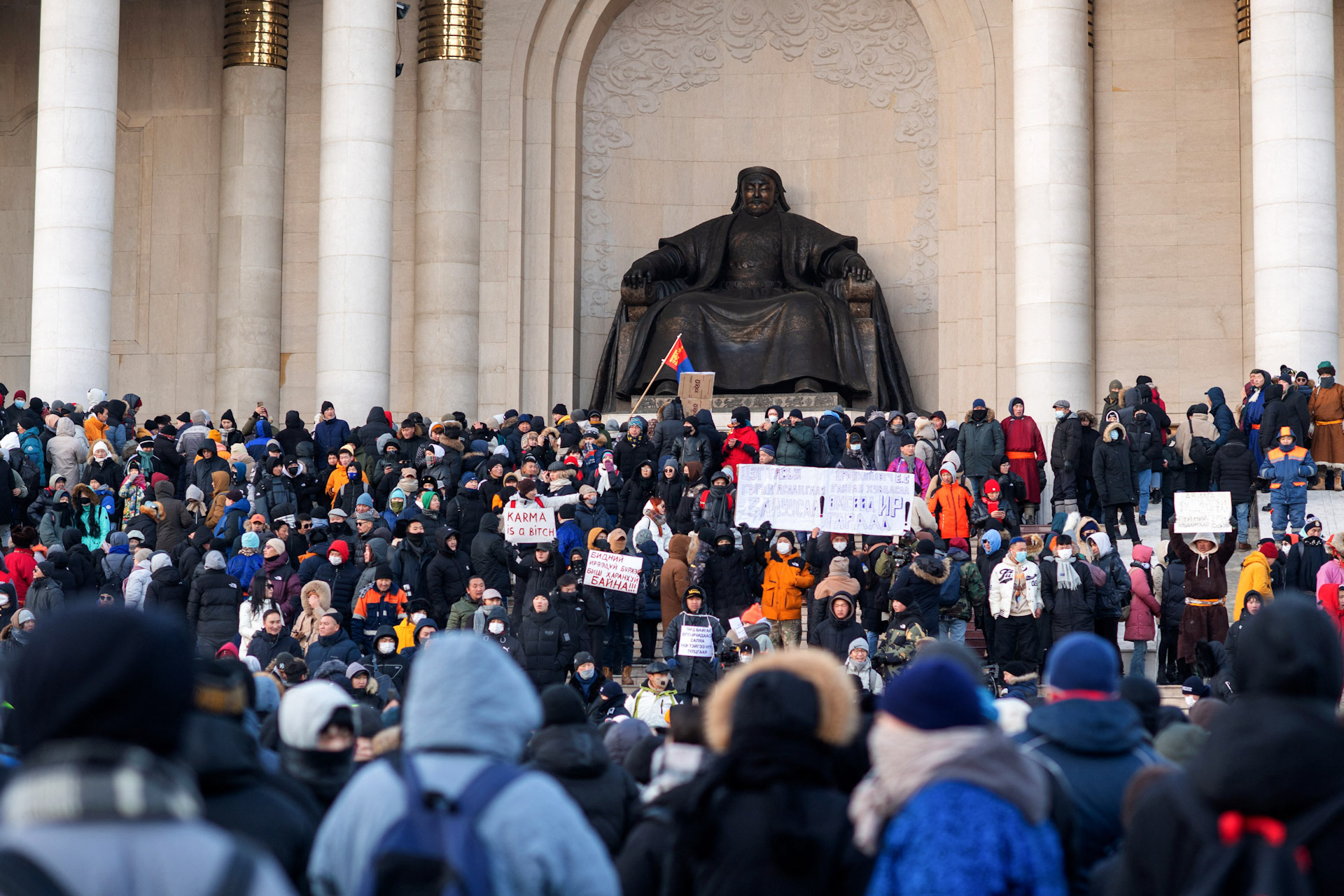The Lessons Mongolia’s Democracy Can Learn from a Complicated 2022
Last year was marred by significant political developments in Mongolia. In January 2022, the Development Bank of Mongolia (DBM), Mongolia’s state-backed bank established to finance projects that bolster the economy, faced serious scandal when it was reported that hundreds of millions (USD) in non-performing loans had failed to be repaid and that many of the loans had been given to politically connected individuals with little scrutiny or oversight. In April, peaceful and organic youth-led protests called for politicians to “Do Your Jobs” due to the worsening economy and lack of political accountability and action. Those demonstrators submitted a list of demands aimed at preventing further inflation, supporting domestic industry, and reining in government spending. In December, a national scandal implicated upwards of 40 high-profile public officials for the loss of hundreds of millions of dollars of state-owned coal. Thousands of protesters gathered for weeks in frigid temperatures outside Mongolia’s Parliamentary building, the State Great Hural Palace, and around the capital Ulaanbaatar and across the nation.

These notable scandals and protests are just a few in recent years of Mongolia’s three decades of democracy. IRI’s recent polling has revealed growing citizen dissatisfaction with corruption and democratic institutions. With the economy as Mongolians’ top concern and the country facing inflation rates averaging around 14% throughout the year, 74% believe that the political parties representing them in Parliament are not doing enough to address citizen needs. While 50% of citizens also believe that the best way to develop democracy is to fight corruption, 64% are dissatisfied with the way democracy is developing in Mongolia. In all, 58% are dissatisfied with the direction in which Mongolia is headed. Mongolians have had enough of the unresolved corruption in their government. But what can be done to win back the trust of the people, especially ahead of the 2024 parliamentary elections?
After both the DBM and coal theft scandals, the State Great Hural and political parties pledged to fight corruption and hold the guilty accountable. However, this pattern has persisted: a corruption scandal breaks, public demonstrations call for accountability, officials pledge to stop this from happening again, and then no actionable anti-corruption strategies are implemented by the government to break the cycle. Internally, political parties must educate their members on ethical behavior, anti-corruption, and other good governance practices. Externally, increased attention from and reporting by investigative journalists and international non-partisan organizations on these issues can provide the critical analysis needed to inform the public and promote transparency and accountability in Mongolia.
Since 2020, under the USAID-funded “Strengthening Women and Youth Engagement in Electoral and Political Processes in Mongolia” program and in coordination with the House Democracy Partnership (HDP), IRI and partners have supported political accountability in Mongolia by conducting campaign promise audits, creating multi-stakeholder dialogues, and facilitating consultation sessions on topics like legislative transparency, oversight, and constituent engagement with the State Great Hural. This work has coincided with the development of the D-Parliament platform, passage of the Law on Parliamentary Oversight, and subsequent public hearings and discussions between policymakers and citizens on issues like the DBM and coal theft scandals and elevating women’s priorities and their participation in political processes.
These examples are opportunities for policymakers to actually listen to their constituents and devise solutions together. While at times the efficacy of these efforts have been doubted because of the State Great Hural’s implementation issues – not enough space for participants, lack of clear expectations and next steps, lack of transparency of information and documentation, technological difficulties, and other impediments – they can be tools of healthy democratic institutions, if used efficiently by both elected officials and citizens.
As Mongolians leave 2022 behind but still grapple with its issues–the ramifications of the scandals, a worsening economy, political pressures, and dissatisfaction with government performance–the pre-election period of 2023 and 2024 can be an opportunity for Mongolian democracy to reflect and learn. Elected officials will need to walk their talk and take tangible steps to increase transparency and political accountability within the government if they truly hope to address corruption. In this new year, IRI will continue to support Mongolia’s democratic journey as the citizens and the government learn from the mistakes of yesterday and prepare for the choices of tomorrow.
Top